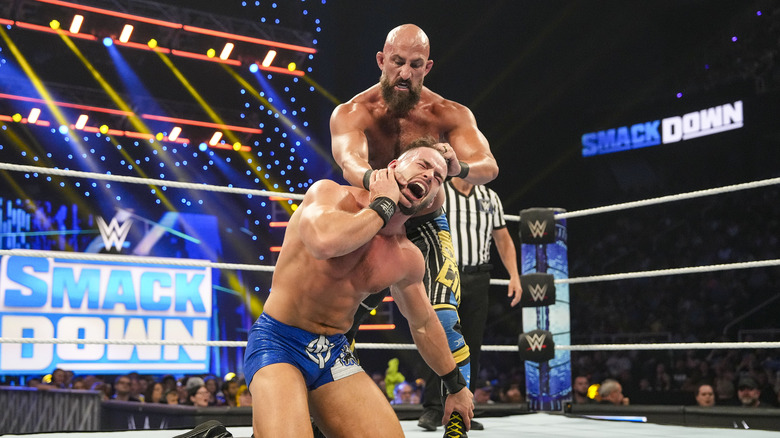An antitrust settlement between the UFC and a group of its former fighters has been temporarily approved by a U.S. district court judge, according to reports.
On Tuesday, Judge Richard Boulware of Nevada temporarily approved a $375 million settlement agreement for Le vs. Zuffa, multiple attendees of the hearing revealed on X shortly thereafter.
Per sports economist Paul Gift, who was present at Tuesday’s hearing, approximately $240 million to $260 million will be paid out to qualifying fighters (those who competed in at least one UFC bout from December 2010 to June 2017) over the next year.
Former UFC fighter Tom Lawlor was also present at the hearing and confirmed the temporary approval.
The Cung Le antitrust settlement is preliminarily APPROVED. Over the next year the #UFC will pay out approx $240-260 million to Zuffa fighters from Dec 2010 – June 2017.
The net number after fees was $260M in court but lawyer costs were unclear.
— Paul Gift (@MMAanalytics) October 22, 2024
Boulware initially denied a $325 million settlement agreement proposed by the two parties in August. That initial agreement also included plaintiffs from a second lawsuit, Johnson vs. Zuffa. Boulware cited concern with the discrepancy in agreement compensation as compared to the initial claims made.
For the new agreement, the parties removed Johnson vs. Zuffa and added an additional $40 million.
Over 100 former UFC fighters wrote letters in support of the agreement on the basis of needing relief for physical, mental, emotional, and financial struggles post-UFC career.
Veteran combat sports reporter Josh Gross was also on site Tuesday and said Boulware specifically highlighted the letters as a factor in the settlement’s temporary approval.
Fighters will be paid after June 2025, when the last of three payments by Zuffa is put into an escrow account. Boulware said the declarations from fighters played a "quite significant" role in his decision on Tuesday. https://t.co/N3lQOqmxEW
— Josh Gross (@yay_yee) October 22, 2024
While Tuesday’s temporary approval of the agreement is a step in the direction of what the two parties are seeking, final approval will still be needed.
Qualifying members of the Le class will be notified of the decision and asked to voice their support or disapproval of the terms. A hearing for final approval will be held in the coming months.
While Le vs. Zuffa strictly sought compensation, Johnson vs. Zuffa seeks injunctive relief, or potentially permanent changes to UFC contracts and business practices.
Five separate class-action lawsuits between December 2014 and March 2015 were eventually consolidated into one (Le, et. al), with a second separate lawsuit filed in 2021 (Johnson, et. al).
The lawsuits centered around alleged violations of the Sherman Act. Class-action lawsuits allow for treble damages, meaning the court could’ve tripled the amount it required the UFC to pay.
The group of former fighters claimed the UFC contract structure and business practices suppressed fighters’ abilities to negotiate and explore other promotional options, creating a monopsony. The efforts were headed by former fighters, including Cung Le, Kyle Kingsbury, Kajan Johnson, Jon Fitch, and Brandon Vera.
CUNG LE VS ZUFFA IS OVER🚨
LIVE FROM THE COURTHOUSE
Judge Boulware grants preliminary approval in the HISTORIC $375 million Le v ZUFFA antitrust lawsuit
BIG TIME BLOW LANDED BY UFC VETS
👊🏼#ufc #mma pic.twitter.com/rROqcAN1hK— “Filthy” Tom Lawlor (@FilthyTomLawlor) October 22, 2024
Be sure to visit the MMA Junkie Instagram page and YouTube channel to discuss this and more content with fans of mixed martial arts.
















